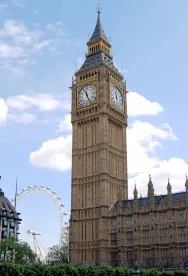As the Pension Schemes Bill (the Bill) continues to progress through parliament, it has been subject to many amendments, one of which would require pension schemes to take into account the government’s net zero targets on carbon emissions, as well as the Paris Agreement goals of limiting the rise of average global temperatures. As at the time of writing, the Bill has finished its passage in the House of Lords and is scheduled to receive its second reading in the House of Commons. For a recap of the Parliamentary process, see our earlier blog.
What are the amendments?
Amendments that will now be considered by the House of Commons include provisions for the government to make regulations that would impose new duties on trustees of occupational pension schemes with a view to securing that there is “effective governance of the scheme with respect to the effects of climate change”. This would involve trustees considering both the risks and opportunities presented by climate change. The provisions, which may be imposed by regulations, include a requirement to:
- Assess a scheme’s asset risk exposure and how its investment strategy contributes to climate change
- Review the exposure of the scheme to climate related risks (the details of which would be set out in regulations)
- Determine, review and (if necessary) revise a strategy for managing the scheme’s exposure to those risks and revise related targets
- Measure performance against such targets
- Prepare documents containing information specified by regulations
Other amendments include requiring trustees to consider scenarios involving the achievement of particular climate change goals.
TCFD recommendations
The Bill has also been amended in a manner that would allow the government to mandate pension schemes to adopt and report against the recommendations of the Task Force on Climate-related Financial Disclosures (TCFD). This would mean that all pension schemes would have to report against the same framework. There are 11 recommendations by the TCFD around the risks and opportunities presented by climate change.
In March, the Department for Work and Pensions published a consultation on aligning pension schemes with the TCFD recommendations. This consultation (which is now closed) sets out guidance prepared by the Pensions Climate Risk Industry Group for trustees on assessing, managing and reporting climate-related risks in line with the TCFD framework.
The guidance states that climate change should be considered as part of trustees’ “investment beliefs”, but these should not be confused with “ethical or moral” beliefs. Although making this distinction may be helpful for trustees in confirming that climate change is a financial factor in investment decision-making, trustees should remember that the perspective of members is still regarded as a non-financial factor under their Statement of Investment Principles (SIP) obligations.
Members are of course not concerned with the niceties of financial and non-financial factors. Already we are seeing evidence, especially in defined contribution (DC) schemes, that the ethical or moral beliefs of members are attracting more attention among DC trustee boards – if only because of the different age profiles of DC scheme members vis-à-vis defined benefit schemes. It will be interesting to see if trustee boards start to take greater steps in considering members’ views.
It is the government’s expectation that all listed companies and large asset owners, including occupational pension schemes, will disclose in line with the TCFD by 2022.
Commentary
Disclosure obligations aside, what does this mean in practice? According to the Pensions Minister, Guy Opperman, taking account of climate change does not necessarily mean that trustees should be disinvesting immediately from fossil fuels, but rather pension scheme trustees are in an influential position to “nudge, cajole or vote firms towards lower-carbon business practices”. Following this statement, more than 60 civil society leaders including MPs and climate experts have signed an open letter accusing Guy Opperman of backing continued investment in fossil fuels. Whether or not trustees wish to divest from fossil fuels, the TCFD acknowledges divestment as an appropriate strategy for trustees wishing to take action to tackle climate change.
It remains to be seen whether these amendments will make it into the final act of parliament. The amendments come at a time where generally trustees are becoming keener to set environmentally responsible objectives. The National Employment Savings Trust (NEST) recently announced that it will begin divesting from fossil fuels and ban investments in any companies that are involved in coal mining, oil from tar sands and arctic drilling with the aim to fully divest from these companies by 2025. NEST has approximately £9.5 billion pounds of assets under management as of the end of March 2020. With that said, schemes that are close to or building towards buy-out in the short term may be less immediately concerned with climate-related risks in general, however, trustees may wish to seek comfort that any annuity provider (or superfund) can satisfy them on climate related due diligence.
This post was written by Patricia Bailey.



 />i
/>i
